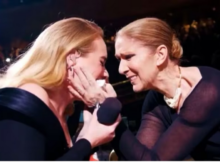The Grand Ole Opry has stirred up controversy by announcing a lifetime ban on global music icon Beyoncé from performing at its iconic venue. This decision has sparked heated debates about the boundaries of country music and the representation of diverse musical styles within the genre. Let’s delve into the details of this contentious ban and its broader implications for the country music industry.
Located in Nashville, Tennessee, the Grand Ole Opry has been a stronghold of traditional country music, showcasing legendary performers and upholding the genre’s rich heritage since its establishment in 1925.
However, the decision to ban Beyoncé, one of the most successful and influential artists of our time, has divided the music community. Reports suggest that the ban was triggered by Beyoncé’s recent venture into country music with her song “Daddy Lessons,” featured on her album “Lemonade,” which blends elements of country, blues, and hip-hop.

Supporters of the ban argue that the Grand Ole Opry has a duty to preserve the authenticity of country music and uphold its traditional roots.
They view Beyoncé’s crossover into the genre as a threat to its integrity. On the other hand, critics see the ban as regressive and exclusionary, perpetuating narrow definitions of country music. They advocate for the evolution of genres to embrace diverse influences and reflect changing cultural landscapes.
The controversy surrounding Beyoncé’s ban also highlights broader issues of diversity and representation in the country music industry. Historically, the genre has faced criticism for its lack of inclusivity and underrepresentation of artists of color.
Beyoncé’s ban underscores these ongoing disparities and the challenges faced by minority artists in gaining recognition within the genre.
In response to the ban, Beyoncé’s representatives have expressed disappointment and emphasized the importance of embracing diversity in music. They argue that Beyoncé’s contributions to country music celebrate its heritage and appeal to a wide audience.
The controversy underscores the tension between tradition and innovation in the music industry, as institutions like the Grand Ole Opry grapple with balancing historical legacy with contemporary sensibilities.
Critics of the ban point to the evolving landscape of country music, which has seen a resurgence of diverse voices and styles in recent years. Artists like Lil Nas X, Mickey Guyton, and Kane Brown have challenged stereotypes and expanded the genre’s reach, promoting greater inclusivity and artistic experimentation.
As discussions around Beyoncé’s ban continue, many are calling for a reevaluation of how country music defines itself and embraces new voices. The controversy prompts reflections on the need for inclusivity and openness within the genre, encouraging a more expansive view of its possibilities.
In conclusion, the Grand Ole Opry’s ban on Beyoncé has sparked a passionate debate about the nature of country music and the evolving dynamics of the music industry.
This controversy underscores the challenges of reconciling tradition with innovation and highlights the ongoing imperative for greater diversity and representation within country music. As artists continue to push boundaries and challenge conventions, the future of the genre remains dynamic and diverse.





